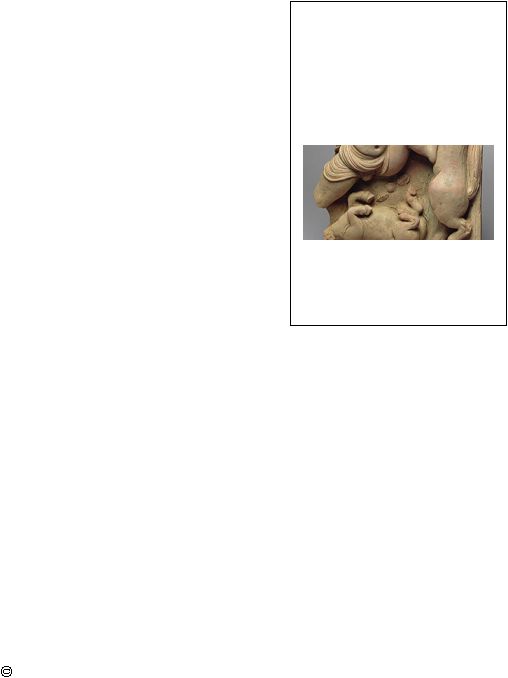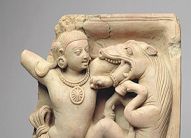

the archetypal mythology of horses
Copyright
2004-2022 Beverley Kane, MD
Page 9 of 20
Both the Vedas and the Celtic myths relate the deeper significance of physically
mating with and devouring the horse. The act is not just a fertility rite, but the union with
the Divine. In an essay on the Universe as a Sacrificial Horse, Swami Krishnananda
describes the elaborate rituals of the Brihadaranyaka Upanishad in which the horse of the
asvamedha sacrifice is the object of consecration and meditation. In this Upanishad, the
horse "becomes a piece of contemplation which is the avowed purpose of the
Upanishad—to convert every act into a mode of contemplation, to transform every
object into the Universal Subject." In effect, the mating of anima and animus in our
personal relationships is a ceremony of ecstatic union with the divine,
Throughout the amateur equestrian world, there is a marked preponderance of
girls and women. During the lunch break at a local
horse show, one dad and I were noting this gender
imbalance as we watched his 12-year-old daughter
compete in her all-girl class. I asked him, "Why do
you think this sport appeals so much more to girls?"
He shrugged and replied, "They want something
powerful between their legs." Whether or not this
rather wan and nerdy Silicon Valley type was
experiencing strong projections of his own anima,
there is probably some truth to his assessment.
There is certainly some appeal for girls and women
of commanding and merging with a 1200-pound
beast who holds for us a certain animus archetypal
attraction and the somarchetypal attraction of
strength and power.
DARK SHADOW
Dark Shadow is the archetype that holds our rejected qualities such as "evil," violence,
ignorance, ugliness, weakness, decrepitude, and barbarism. When we fear we have these
qualities or have not recognized their positive alter egos, we project them onto our
enemies and villains, the "axis of evil," a despised relative or colleague, a race, nation, or
class of people.
8
Horses that are portrayed as behaving demonically, as if motivated by evil or ill
will, carry Shadow energy for the human race. In keeping with the gentle nature of
waking life horses, there are relatively few stories of mean, savage horses. In fact, most
horses in such tales derive their demonic qualities from shape changing gods, such as
Keshi or from their riders, who, like the Four Horsemen of the Apocalypse, are
themselves identified as the Devil or an evil witch.
The illustration on the right depicts an episode from the early life of the god
Krishna, an incarnation of Vishnu, who periodically descends to earth to battle the forces
of evil. Here Keshi, a mighty demon in the form of a horse, has been sent to destroy
Krishna. The combatants glare at each other, eyes bulging: Krishna's from the intensity
Krishna battling the horse
demon Keshi. 5th century.
Uttar Pradesh, India


